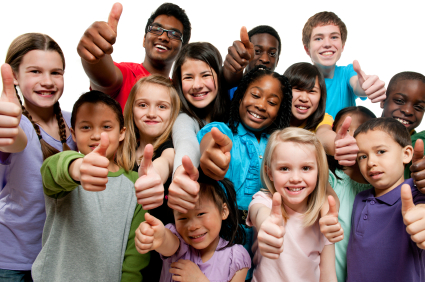
Teaching friendship skills focuses on building behavioral interaction skills such as sharing, taking turns, showing good sportsmanship, and asking peers to play appropriately. However, learning to be a friend involves a great deal more than learning behavioral interaction skills. It is also important to learn and develop perspective taking skills, emotion awareness and management skills, and conversation skills. Friendships are developed and maintained through conversations, seeking things in common with peers, showing interest in peer’s experiences and thoughts, and creating shared experiences and memories with a peer. Further, a friendship will not progress if a child does not understand gradations of emotions and how to respond appropriately and manage their own emotions.
In order to help children develop and maintain healthy friendships, it is critical to incorporate activities that build social cognitive skills, as well as the behavioral skills. Social cognitive skills help children understand why social behaviors are important to their peers and other individuals. Social cognitive skills create the foundation for helping children understand that people are always thinking about other people when they interact. Michelle Garcia Winner, SLP, is a pioneer in understanding and addressing social cognitive skills. The name of her flagship book, Thinking about You, Thinking about Me, encompasses the notion of social cognition and describes the basis of social interaction and relationship building.
Social interactions are not a static or segmented process. Instead these interactions entail subtle, reciprocal interchanges where friends continually assess how one’s own behavior is being perceived by others and adjusting accordingly. There are countless nonverbal rules and expectations, rapid perspective taking requirements, and a demand to socially filter what is communicated to peers continuously. Children with social interaction skills deficits often lack this intuitive social thinking process of aiming to please and attend to peers in their interactions. Rather, their conversations and relationships are often one-sided or superficial in nature. These children have difficulty recognizing the subtle nuances of nonverbal communication and are unaware of unwritten social rules. Lastly, these children often have difficulty dampening or managing their own emotions when facing the unpredictability of the social world. It is for these reasons that an approach to increasing social competence should incorporate all aspects of social pragmatic communication development: perspective taking, emotion awareness and expression, nonverbal communication awareness, and conversational skills.
Yours in Health,
New Horizons Wellness Services13333 SW 68th Pkwy,
Tigard, OR 97223
- https://g.page/newhws
New Horizons Wellness Services provides a true multidisciplinary approach to mental & physical health treatments for children, adults and families.
